Sumao Ishihara
Nacimiento : 1903-05-01, Kobe, Hyōgo Prefecture, Japan
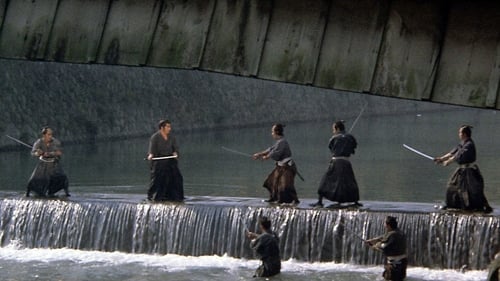
Primera en una serie de adaptaciones al cine de imágen real del famoso manga escrito por Kazuo Koike y dibujado por Goseki Kojima. Narra las aventuras de un ronin que deambula por el japón del shogunato Tokugawa acompañado de un niño. Esta película narra los orígenes del personaje y también es conocida por su título literal:"Lone Wolf and Cub: Child and Expertise for Rent".

BLOOD END is one of the great unknown films from Japan's golden era of the late 1960's. Starring NAKADAI Tatsuya in one of his best roles, this is the story of the Mito Tengu Group who attempted to overthrow the Shogunate at the beginning of the Bakumatsu Period. Their political aspirations led to countless assassinations, as well as senseless killing of innocent people who got in their way. Sentaro (NAKADAI), a farmer who's been severely beaten for his outspoken defiance of the government and the high taxes during a time of famine is befriended by one of the group's leaders, KADA Gentaro (KATO Go) and joins up. This is the masterpiece of director YAMAMOTO Satsuo (who is best known for the first film in the NINJA, BAND OF ASSASSINS series) the erstwhile 'Leftist' director, who used his films to make his political points. Stunning fight choreography, and ultra-violence make this one of the bloodiest films of that era. A powerful film Rare classic!

Ichikawa Raizo’s last film. He plays a Yakuza enforcer who kills a man on his boss's orders. He’s then sent to a provincial town to lie low, only to be caught in another war orchestrated by his original boss who has set him up.

Passenger B
One of the nuns at Senjuan is Sister Shunko (Michiyo Yasuda). Unlike the usual nun, however, she often goes out to see the world, being of the opinion that nuns should not lead cloistered lives but should see something of modern life. She makes the acquaintance of a young girl named lkuko (Kayo Mikimoto) and saves her from the advances of a gangster named Goro (lchiro Nakatani). In the meantime she turns down several propositions and, in revenge, one of her admirers denounces her to the Mother Superior (Kuniko Miyake). This lady is of liberal views, however, and refuses to do anything about it. Then Shunko is visited by Goro's gang boss who wants lkuko back and says he will blackmail Shunko unless she agrees.

The first film in the 2 part series about Ryuzen, a renegade martial-arts priest who, in addition to breaking all the commandments against sex and gambling, opens his own gambling den in direct defiance of the local yakuza boss. Exciting action and a twisty plot this movie breaks new barriers in Japanese cinema. Katsu Shintaro is superb in one of his better non-Zato Ichi roles as he fights off the advances of a love-lorn woman and risks his life to defeat the powerful gambling boss who has a stranglehold on the town.
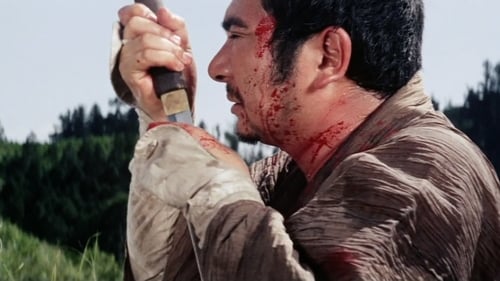
When a local gambling house kidnaps some peasants because they failed to pay their debts, a rival gambling house pays their debts and sets them free.

Third film of the yoidore hakase series

A sequel to the popular "The School of Spies", this film continues the adventures of one of the graduates who is assigned to crack a powerful spy ring working out of Kobe. Various people are suspected but, finally, it seems that an Army captain and his geisha friend might lead them to the ring.
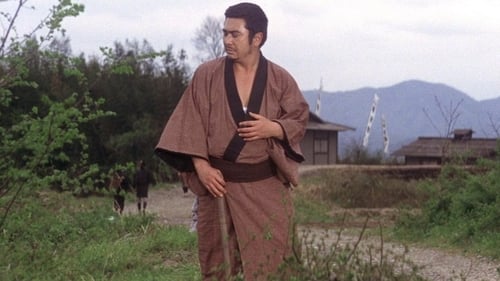
Zatoichi comes upon a dying man who asks him to give a bag of money to "Taichi". Zatoichi has no idea who this is but when he comes upon a small town harassed by gangsters, he finds that "Taichi" was the man's young son. Along his travels he also met a blind monk who makes Zatoichi question his murderous lifestyle. In trying to help the town, Zatoichi kills some gangsters and becomes a hero to the boy. He must make a choice of whether to use non-violence and set a good example, or violence and set the boy on the wrong path in life.

A wandering gambler strolls into a village searching for his father's killer, unaware that the village is run by criminals who sell the poorest peasants into slavery.
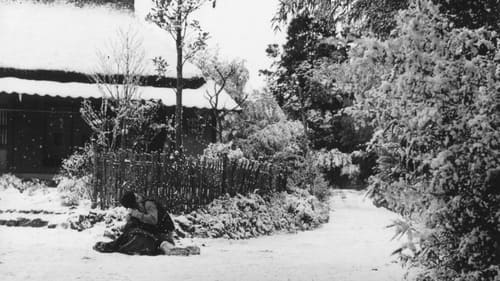
Un joven artesano de bambú se casa con una prostituta, pero es incapaz de consumar el matrimonio porque la imagen de su difunto padre, que la había visitado durante los últimos cinco años, se interpone entre ellos.
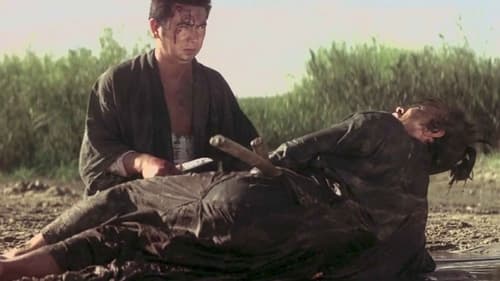
Cuarta de las veintiséis películas basadas en el personaje de Zatoichi, interpretado por Shintarô Katsu. En esta cuarta entrega, un clan yakuza pone precio a la cabeza de Zatoichi, por lo que muchos irán a por "el fugitivo" para ganarse una buena recompensa. Mientras tanto, Zatoichi se reencuentra con un viejo amor, Tane, pero esta ha rehecho su vida con otro hombre.
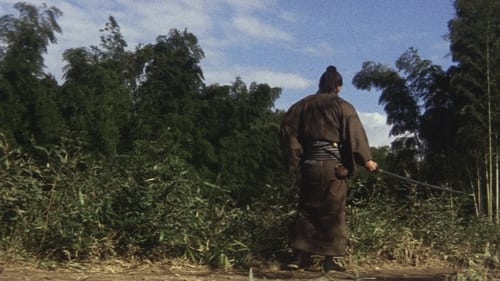
Un hombre honesto se une a los Shinsengumi por respeto a su líder y porque quiere vivir y morir como un samurai. Sin embargo, a medida que su participación en el grupo aumenta, la realidad y el idealismo entran en conflicto mortal.

The Fencing Master tells the story of a man trying to survive as the only world he knows is becoming increasingly irrelevant. Danpei Ichikawa lives for swordfighting – he was once a renowned kabuki swordfight choreographer, and as the Chairman of the New National Theatre Company, he wants nothing more than to choreograph the swordfights for the modern plays put on by the company.

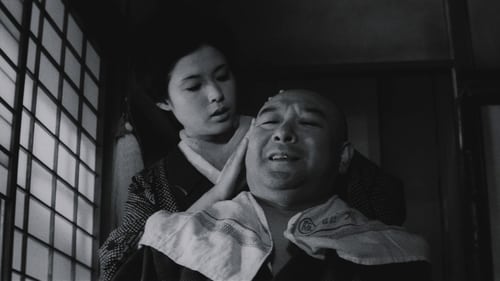
Kishichi Sengoku
Satoko is a mistress by trade or fate: when her master, the silkscreen artist of the Kohoan Temple in Kyoto, dies, she is given to the temple's lascivious head priest Kikuchi. She is drawn to a melancholy young acolyte, Jinen, who has observed the profligacy of his cruel master and Satoko's utter dependence on the man. Jinen is both fascinated and disturbed by Satoko's interest in him; he is similarly caught between loathing of Kikuchi and of the dark circumstances of his birth and his own moral weakness. The story unfolds in a dreamlike manner—a flashback inspired by a now-infamous image on a silkscreen in the souvenir shop at the so-called Temple of the Wild Geese.

An Indian prince leaves his world of comfort and riches behind to wander and meditate for six years in search of spiritual enlightenment. Siddartha (Cojoin Hong) turns his back on the old religion when people are starving needlessly and holy rituals include human sacrifices. During his meditations, he is tempted by erotic dancing women, demons, and the evil machinations of his criminal cousin. Devastate to attain the spiritual perfection and become the Buddha. He travels to convert followers by his kindness and wisdom, gaining a multitude of believers when he stops an elephant from crushing a local priest. Buddha of course goes on to become one of the great religious leaders of the world.

One of Japan's most popular stories is the tale of Kutsukake Tokijiro, a traveling gambler who finds that he must take care of the wife and child of a yakuza he had been forced by the code of the gamblers to fight man to man. In a brilliant performance from super-star Ichikawa Raizo, with strong support from two of the greats from Toho, Shimura Takashi (7 Samurai) and Aratama Michiyo (Sword of Doom) the heartfelt story reaches new heights. Tokijiro, having learned the true nature of the boss to whom he was obligated for having spent a night and eaten at the gang's headquarters takes up arms against them in a running battle fought across the back roads of the entire nation. Another powerful rendition of this superb story, it is not to be missed!
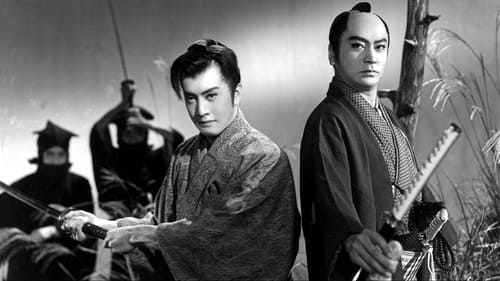
A gripping historical drama full of suspense and a mysterious bewitching mood. A puzzle of a turbulent era in which various characters fall into a maelstrom of events - a pretty girl, a strange beggar woman, a charming thief, a clever detective, the famous magistrate Toyama Saemon no jo, they all struggle to unravel this mystery of the white bell, which provoked the sudden disappearance of two beautiful women caught in one place at the same time at midnight.
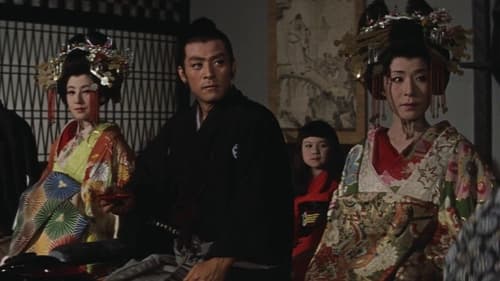
Quick lunch shopkeeper
Basada en la novela THE GREAT BUDDHA PASS (la fuente de SWORD OF DOOM), esta versión de la clásica historia va más acorde con la novela original.
La historia de un asesino a sangre fría, Tsuke Ryunosuke y sus desventuras en Japón durante la década de 1860. Como telón de fondo de la agitación política de la época.
Esta es la primera de la trilogía.

During the 1200's, legendary Buddhist monk Nichiren returns from his studies to lead Japan out of moral crisis and prepare to fight Mongol invaders by creating a new form of Buddhism. He runs afoul of the existing Buddhist sects and their government supporters and is persecuted. Can Nichiren persevere before the Mogol fleet reaches Japanese shores?
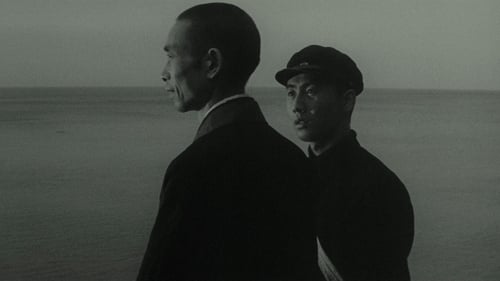
Adaptación de la novela de Yukio Mishima "El pabellón de oro", a través de diálogos y flashbacks controlados se cuenta la historia de un novicio budista que llegará a destruir lo que más ama: el pabellón.
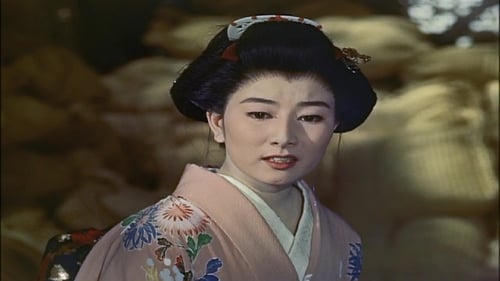
From the pen of Yoshikawa Eiji comes this exciting story. The Naruto Strait separates Tokushima from the islands of Awaji and Honshu. On Tokushima the mad lord dreams of conquest and forges a bloody revolt against the Tokugawa shogunate. A mysterious swordsman named Noriyuki Gennojo has crossed Naruto’s waters to uncover the Awa clan’s secrets. He puts his life on the line after finding a testament of Awa’s secrets, written in blood by a dying man. Joining Noriyuki are a female ninja who loves him, and the beautiful daughter of an enemy who’s sworn to kill him. Awa’s defenders willl stop at nothing to prevent the blood-soaked letter from reaching the shogun.

Hostess
A poor peasant, after years of scraping, becomes a rich and powerful Osaka merchant. Mizoguchi Kenji's final project; he died before completing it and directing duties turned over to Yoshimura Kozaburo.
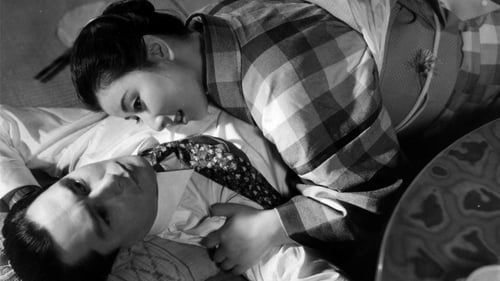
In Kyoto a young kimono maker with traditional ideas gets involved with a married professor.
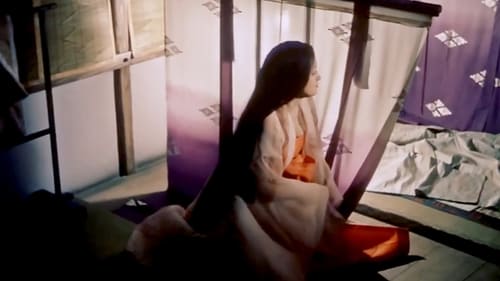
En el Japón feudal del siglo XII, los Taira y los Fujiwara son clanes que luchan por la supremacía. Mientras tanto, en el palacio imperial hay dos cortes: la del emperador en funciones y la de su predecesor.
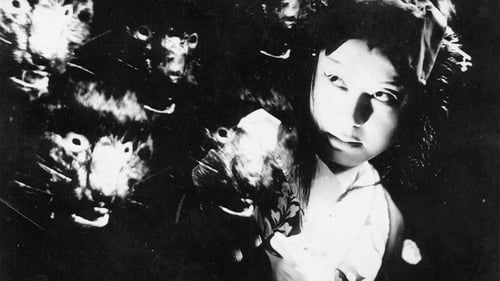
A kabuki actress is murdered. Her pet cat laps its mistress's blood and becomes a demon possessed by the vengeful murder victim.
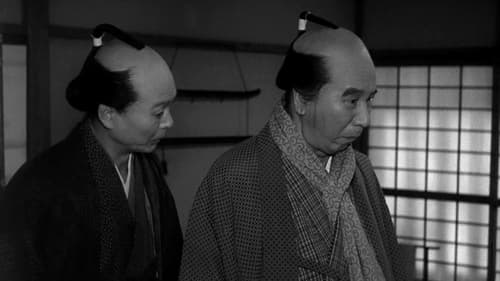
Inn head clerk
Adaptación de una obra de teatro (kabuki) del siglo XVII de Chikamatsu Monzaemon. Osan vive en Kioto y está casada con Ishun, un rico y tacaño funcionario. Cuando Osan es acusada falsamente de tener una relación con Mohei, ambos huyen rápidamente de la ciudad. Ishun, por su parte, ordena a sus hombres que los encuentren y los separen para evitar el escándalo.
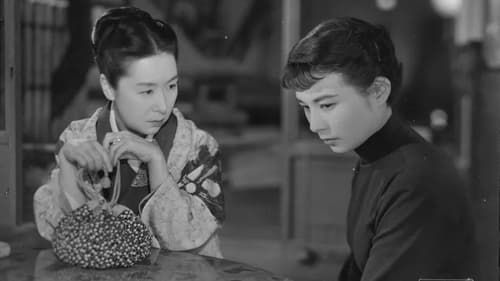
Store owner
Yukiko es una estudiante de música que, después de un intento de suicidio, vuelve con su madre, Hatsuko, una viuda que regenta una casa de geishas. El joven doctor Matoba, que mantiene un affaire con Hatsuko, se siente atraído por Yukiko. Ella, al principio, lo rechaza, pero sus sentimientos van cambiando y llega incluso a enfrentarse con su madre.
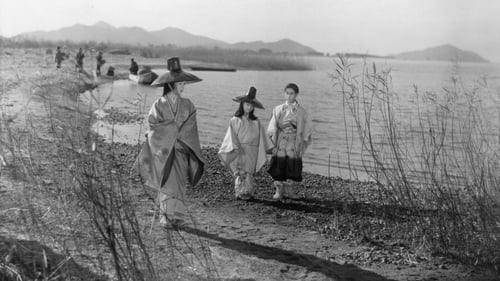
Yakko
A finales de la Era Heian en el siglo XII, el gobernador de un pueblo es enviado al exilio. A pesar de que su familia quiere ir con él, ninguno podrá acompañarle, pues, engañados por una vieja que se hace pasar por sacerdotisa, son vendidos como esclavos por separado: la madre por un lado y los hijos por otro.
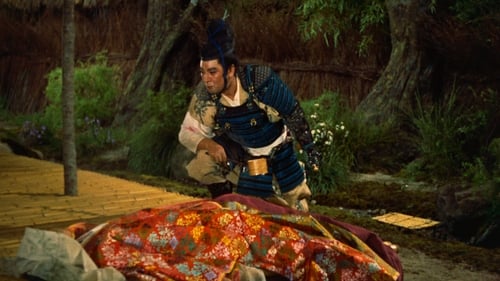
Pot Salesman
Japón, 1159. Moritō, un valiente samurái, realiza un acto heroico rescatando a la encantadora Kesa durante un violento levantamiento. Moritō se enamora de ella, pero se angustia cuando se entera de que está casada.
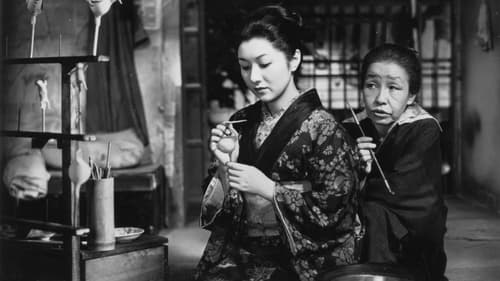
Kokichi
La joven y bella Eiko ha ido a refugiarse a un barrio de Kioto, a casa de Miyoharu, una geisha con muy buena reputación de la que Eiko quiere aprender. Ambas se hacen inseparables, pero una noche Eiko muerde a un cliente y las dos deben abandonar el barrio.
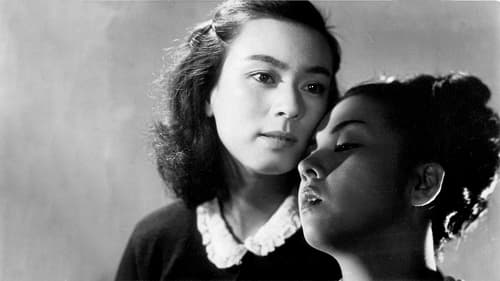
Clothes of Deception initiated Yoshimura’s most characteristic vein. This geisha story is often described as a loose remake of Mizoguchi’s pre-war masterpiece Sisters of Gion (1936), but this is inexact. Whereas in Mizoguchi’s study of two sisters, both women had been geisha, in Yoshimura’s film only Kimicho (Kyo Machiko) is, while her sister works in the Kyoto tourist office. Juxtaposing a traditional Kyoto profession with a modern one, Yoshimura shows how life in the old capital was changing in the wake of wider transformations in Japanese society.

En el Tokyo de 1885, Kikunosuke Onoue, hijo de un importante actor, descubre, desolado, que es aplaudido únicamente por ser el heredero de su padre y que, en realidad, el público se mofa de sus interpretaciones. La única persona que se atreve a ser sincera con él es Otoku, la niñera de los hijos de su hermano. pero precisamente por ello es despedida, y a Kikunosuke le prohiben verla por temor a los rumores que se desatarían por su relación con una sirvienta.

dir: Teinosuke Kinugasa

Two cowardly palanquin carriers know the culprit of a murder but are too scared to report it to the police. In the mean time, an innocent man is arrested as the murderer and chaos ensues. Pre-war jidaigeki film.

Kajimura
This 1932 adaptation is the earliest sound version of the ever-popular and much-filmed Chushingura story of the loyal 47 retainers who avenged their feudal lord after he was obliged to commit hara-kiri due to the machinations of a villainous courtier. As the first sound version of the classic narrative, the film was something of an event, and employed a stellar cast, who give a roster of memorable performances. Director Teinosuke Kinugasa was primarily a specialist in jidai-geki (period films), such as the internationally celebrated Gate of Hell (Jigokumon, 1953), and although he is now most famous as the maker of the avant-garde silent films A Page of Madness (Kurutta ichipeji, 1926) and Crossroads (Jujiro, 1928), Chushingura is in fact more typical of his output than those experimental works. The film ranked third in that year’s Kinema Junpo critics’ poll, and Joseph Anderson and Donald Richie noted that 'not only the sound but the quick cutting was admired by many critics.
































